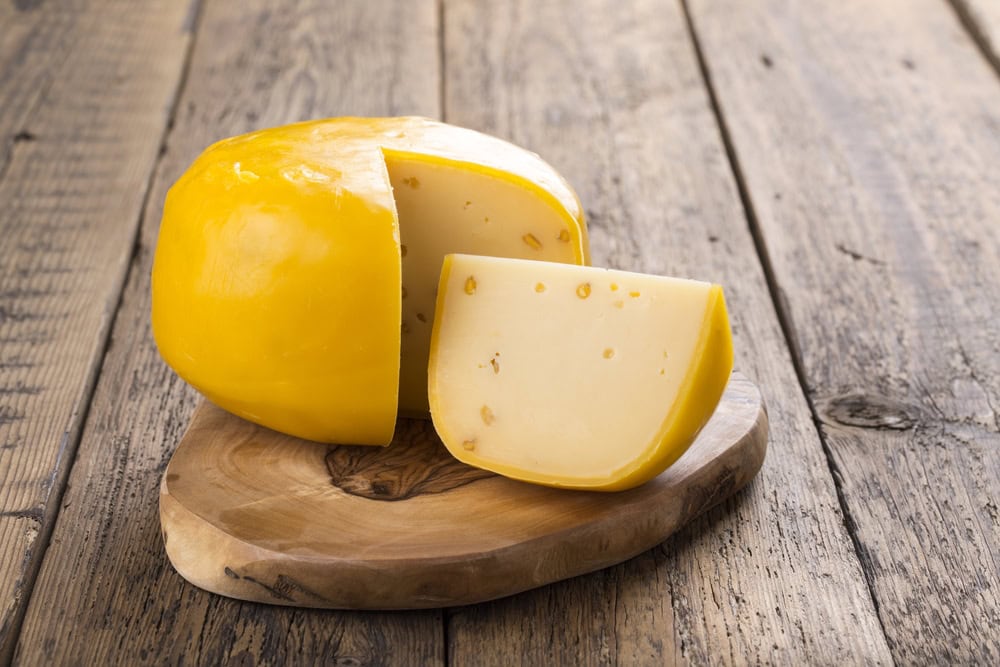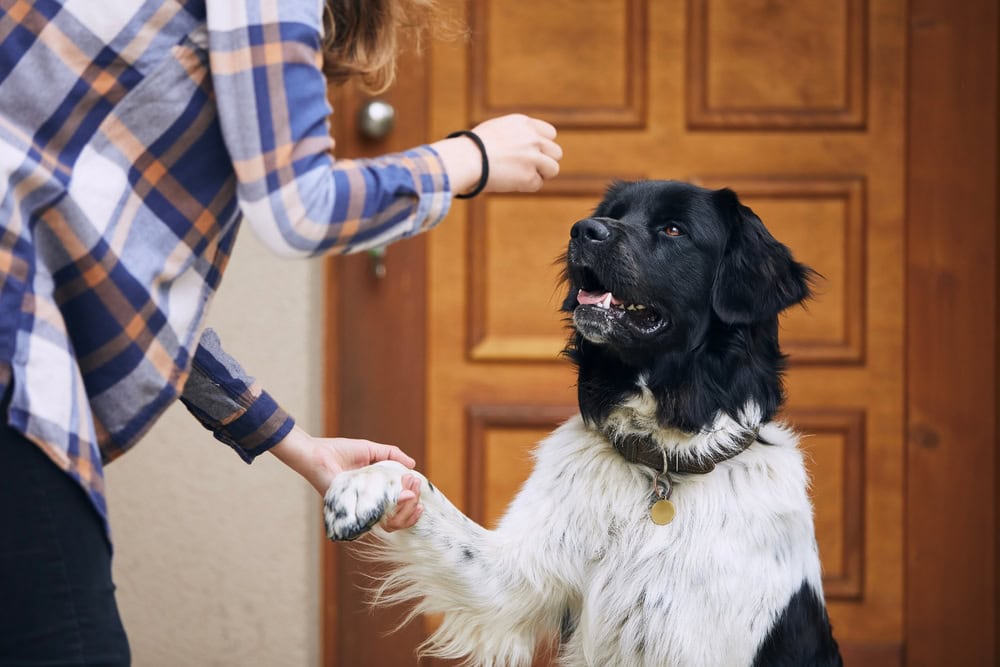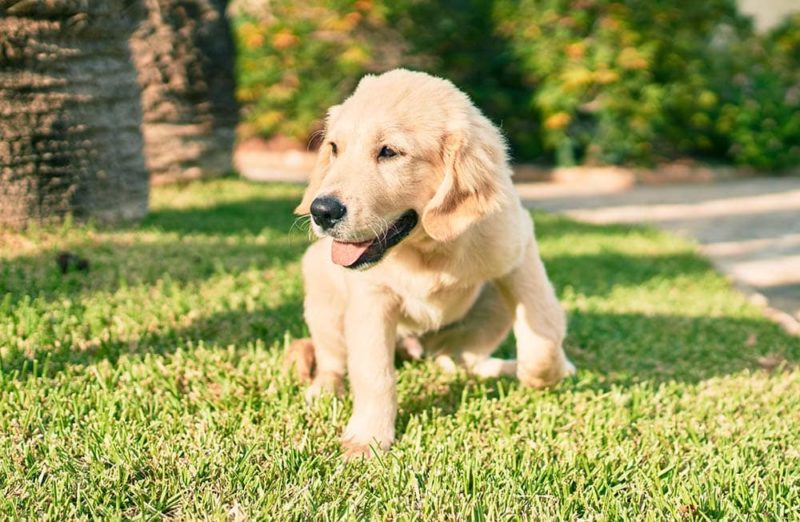Can Dogs Eat Gouda? Vet-Approved Nutrition Guide
By Grant Piper
Updated on

Click to Skip Ahead
Gouda is a delicious type of cheese that is favored by many people. Gouda can be bought by the block or in slices made for platters or sandwiches. It is a rich cheese that is a perfect complimentary ingredient in a lot of high-end dishes. As much as people love gouda, is it safe for dogs? Many dogs beg for cheese, but can they eat delicious gouda? The answer to that question is technically, yes, dogs can usually eat gouda in small amounts. However, cheese is not the best food for dogs, and it does have some risks, especially if fed repeatedly over time.
Can Dogs Eat Gouda?
Yes. Dogs can eat gouda cheese. Gouda is not toxic, poisonous, or dangerous for dogs, especially in small quantities. That does not mean that you can or should feed your dog copious amounts of cheese. While gouda is not dangerous for dogs in most cases, it is not great for dogs to eat. Gouda provides little in the way of healthy nutrition and it will also add unnecessary fats that are not good for your dog’s digestive system or weight.

Gouda Nutritional Facts
Serving Size: 100 g
| Calories: | 356 kcal |
| Fat: | 27.4 g |
| Protein: | 24.9 g |
| Calcium: | 700 mg |
Gouda Health Concerns
As you can see from the nutritional facts, gouda is high in fat and calories. These are the two biggest downsides to feeding gouda to dogs. Over time, these excess calories will cause your dog to put on weight. One of the main health concerns stemming from eating human food like gouda is obesity. Obesity can predispose dogs to severe diseases like arthritis, pancreatitis, diabetes and even some cancers. Even a one-off high fat meal is enough to trigger pancreatitis in some dogs.
The exact mechanism that triggers pancreatitis is not known, and some dogs develop this disease extremely easily, while other dogs will never develop it. Feeding excessive amounts of things like gouda cheese can cause pancreatitis, which can constitute an emergency in the worst-case scenario.
Many dogs are lactose intolerant and can develop an upset stomach if fed cheese. If your dog develops any signs of an upset stomach they will also need to be seen by the vet.

Only Feed Cheese in Moderation
If you choose to feed your dog cheese, be sure to do it in moderation and stop if your dog develops any vomiting or diarrhea. If your dog is susceptible to pancreatitis or overweight it is best to steer clear altogether.
Dogs should only get one small bite of cheese every now and then. It is best to feed your dog cheese as a treat; do not let your dog eat large amounts of cheese in one sitting and try not to feed your dog cheese on consecutive days. Too much cheese can lead to digestive issues, obesity, and pancreatitis. The best thing to do is to limit your dog’s cheese intake as much as possible.
In an ideal world, you will not feed your dog any cheese. This food offers few benefits for dogs and can cause a lot of health issues, especially in the long run. If you can avoid feeding cheese altogether, that would be the best.
There are cases in which a dog will get into food that it shouldn’t or sneak a piece of gouda off the counter or the table. If this happens, monitor your dog for any signs of illness and seek veterinary care if they occur.

Conclusion
Gouda is not toxic and a little bite won’t cause problems in most dogs. However, gouda has a lot of fat, which can contribute to dog obesity and can occasionally cause pancreatitis, both of which can be dangerous. Many dogs are lactose intolerant and get an upset stomach when fed any cheese. It is a good idea to avoid giving your dog cheese as much as possible, and if you do feed your dog cheese like gouda, do so sparingly and in moderation.
See Also:
- Can Dogs Eat Sugar Cane? Vet-Reviewed Facts & FAQ
- Can Dogs Eat Grilled Cheese? Vet-Verified Health Concerns
Featured Image Credit: Geshas, Shutterstock











